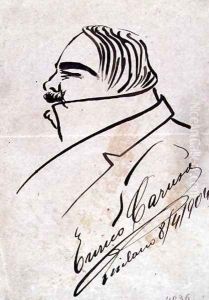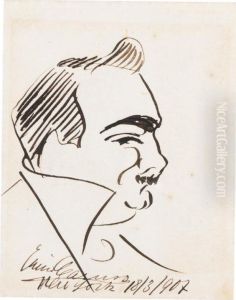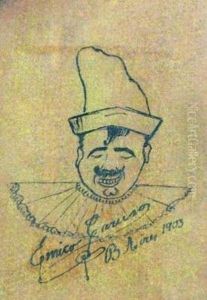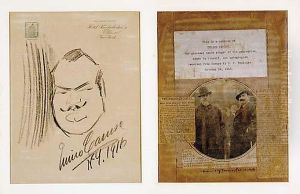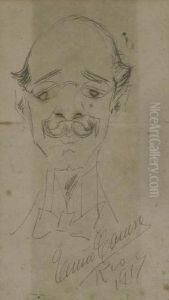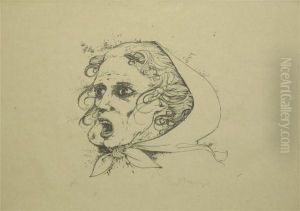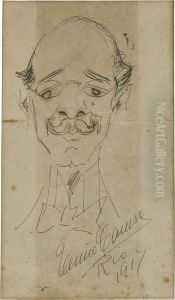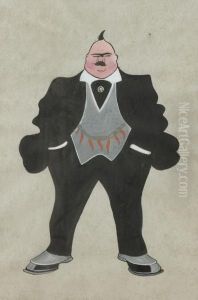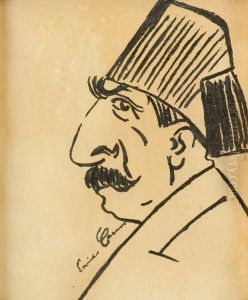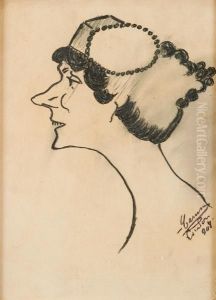Enrico Caruso Paintings
Enrico Caruso was an Italian operatic tenor, who was one of the most famous and acclaimed singers of the early 20th century. He was born on February 25, 1873, in Naples, Italy, to a poor but musically gifted family. From a young age, Caruso showed interest in music and began his vocal training in Naples. His first public appearance was in 1895 in a small part at the Teatro Nuovo in Naples.
Caruso's voice was known for its vibrant timbre, excellent control, and expansive range, qualities that made him one of the first global superstars of the music world. He made his professional debut in 1895, in L'Amico Francesco by Domenico Morelli. His first major success was in 1897, playing the role of Loris in Umberto Giordano's Fedora at the Teatro Lirico in Milan. This performance established him as a leading tenor, and from there, his career swiftly expanded internationally.
Caruso went on to perform at major opera houses around the world, including La Scala in Milan, the Royal Opera House in London, and the Metropolitan Opera in New York, where he became particularly associated and achieved immense popularity. He appeared in a wide range of roles from the Italian and French repertoires and became well-known for his performances in works by Verdi, Puccini, and Bizet among others.
In addition to his stage performances, Caruso was a pioneer in recording technology. He made over 200 recordings from 1902 to 1920, which contributed to his international fame and preserved his voice for posterity. These recordings played a crucial role in popularizing opera and bringing it to audiences who might never have had the opportunity to hear live performances.
Caruso's life offstage was as eventful as his career. He experienced personal and professional highs and lows, including a highly publicized scandal in New York and health issues that affected his performances. Despite these challenges, his popularity never waned, and he remained a revered figure in the world of opera.
Tragically, Caruso's career was cut short by illness. He suffered from a series of health problems, including a throat condition and pleurisy. His health deteriorated further, and he died on August 2, 1921, in Naples, at the age of 48. Caruso's legacy endures, and he is remembered as one of the greatest tenors in the history of opera, whose voice and recordings continue to be studied and admired by singers and opera enthusiasts around the world.
